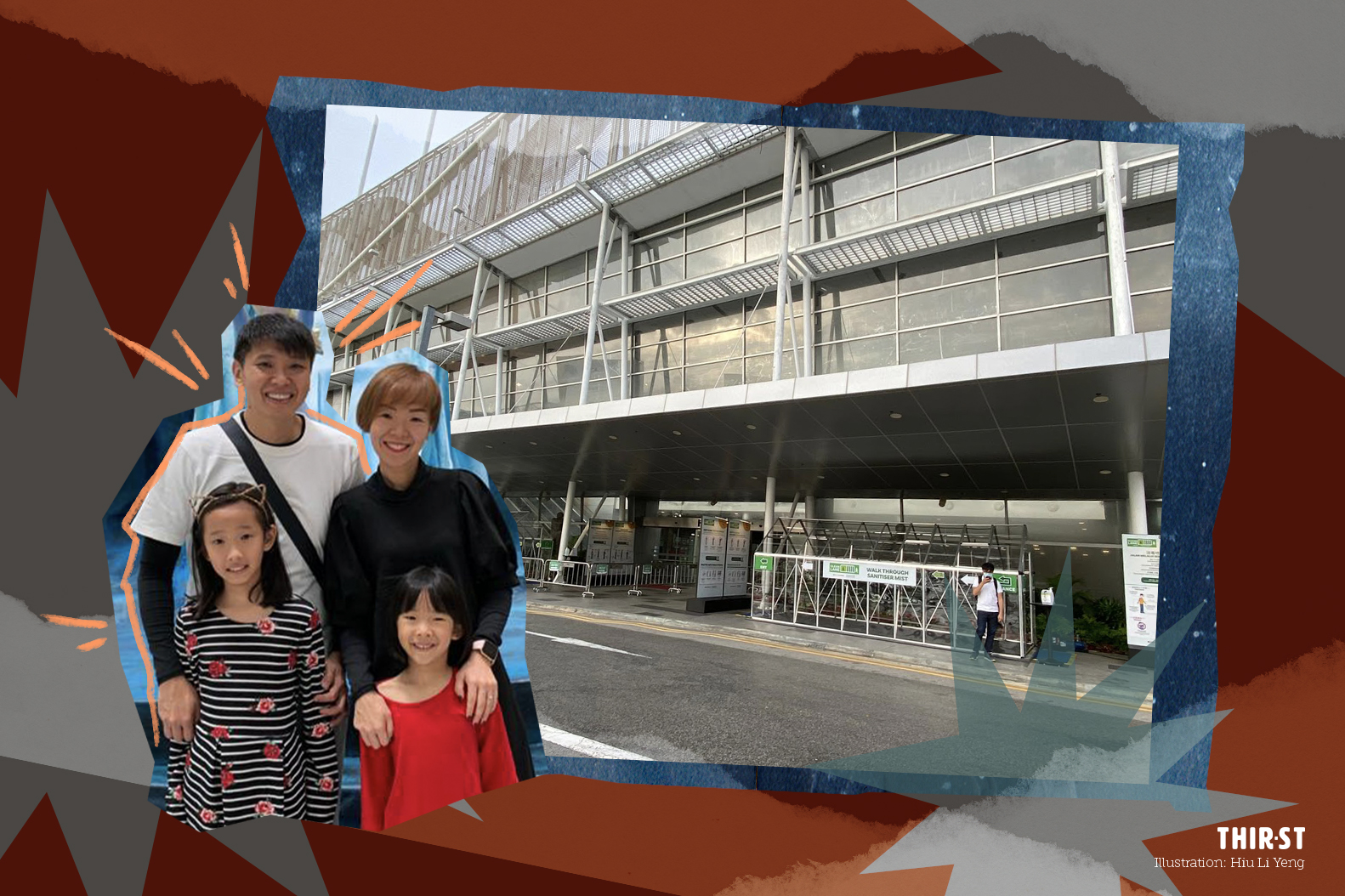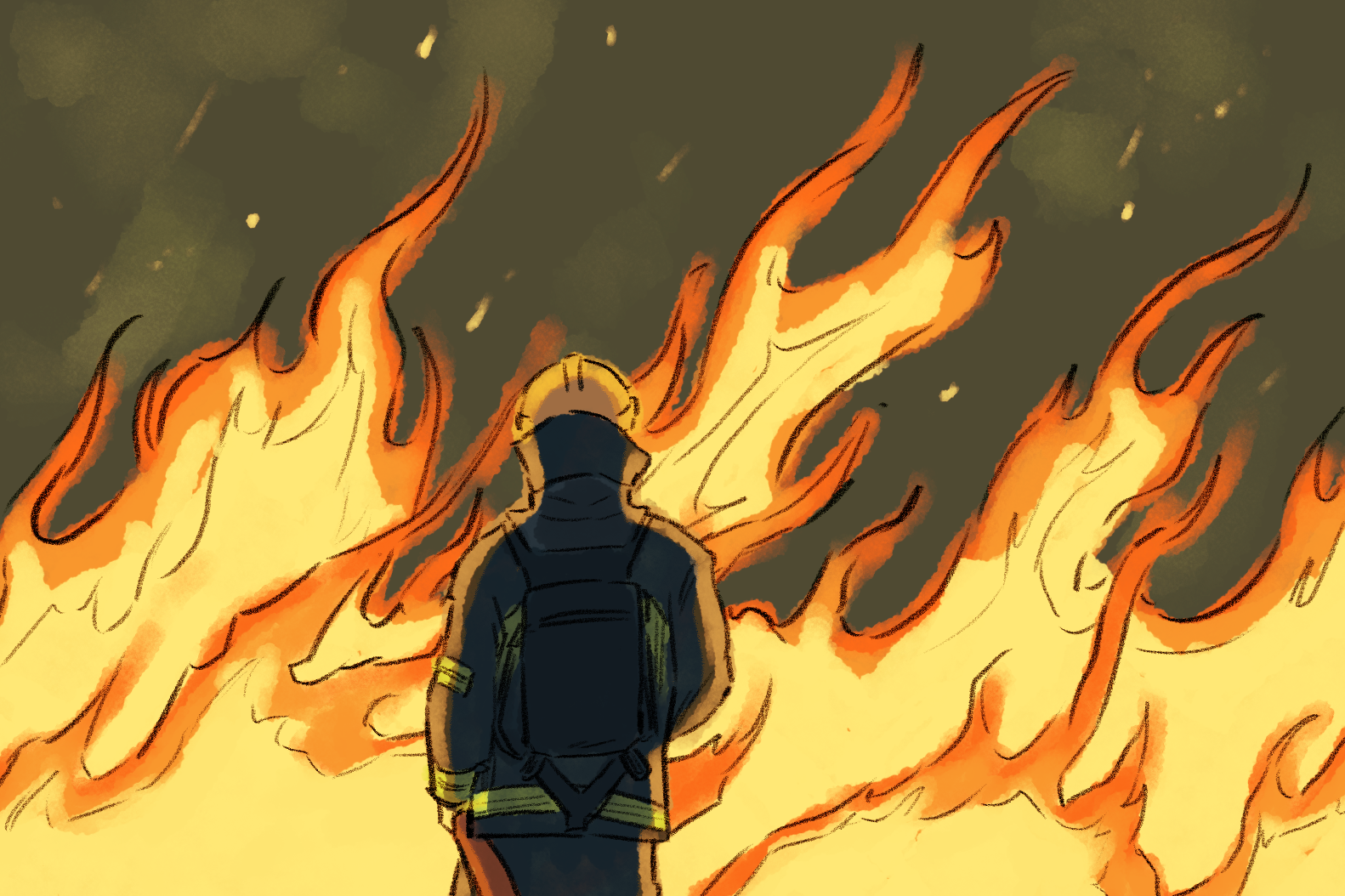“I just joined Woodlands Health Campus in March,” he says. “My original role was as an executive in building Resilient Community Neighbourhoods. When I joined the campus, that was when the COVID-19 situation started escalating.”
Vincent recalls: “On my 10th day on the job, my boss asked me if I would be comfortable to be deployed to a CIF. I replied that I would, as I felt that I could contribute in some way.”
Singapore Expo received its first batch of patients on April 10, five days after Health Minister Gan Kim Yong first confirmed the facility preparations at Expo.
“It was pretty intense during the initial days there because operations had just started and patients were coming in very fast,” Vincent recalls.
“I received a five-minute brief, was handed a walkie talkie and a duty phone, and was out there running,” he says. “It was only when I was driving home that night, that it hit me what I had gone through that day. It was really shocking.”
Vincent’s team ensures that all logistics and needs are met and replenished. To do that, his team members have to coordinate, with various parties, accurate and measurable responses for each situation that develops.
One such situation was when there were patients who had to be sent back to the hospital when they felt worse after settling down at Singapore Expo.
When the CIF at Expo was first open, there were only two halls housing 950 patients. Subsequently, more halls were converted to meet the growing number of cases.
“From constructing the patient areas to the administrative and operations centres, everyone plays a part, and everyone contributes,” says Vincent of the single-minded efforts of the frontliners.
In particular, he highlights the sacrifices of the doctors and nurses.
He says: “I’ve seen many with cuts on the bridge of their noses and around their ears, caused by wearing the N95 masks and goggles all day. Most of them come out drenched in sweat after wearing the full PPE (Personal Protective Equipment) for hours and hours.”
Vincent adds: “The best I could do, while running each ops mission – settling the logistical matters – is to turn around and ask them, ‘have you eaten?’, ‘do you need anything?’, ‘are you feeling okay?’”
Being a Christian in the thick of the COVID-19 situation, Vincent is reminded of a phrase that is used in his church: Kristos Kai Kosmos, or Christ in culture.
“We don’t have to tell everyone we are Christians, but it is important to be nice to everyone because we carry the very essence of Christ, that is, to love one another,” he says.
“I am not a doctor or a nurse, and I don’t wear PPE or run in and out of the hall. But what I believe I can do, is to bring that touch of Christ into the place I am in and to make it the best place possible.”
Vincent feels that every bit of support helps during this period. As needs grow, the workforce involved in this battle will be further stretched*.
A large facility at Tanjong Pagar Terminal is being constructed that can house up to 15,000 people to meet future needs.
“Currently, many agencies are participating in this life-saving mission,” says Vincent. “So if I may say so, we need encouragement and support for everyone involved: the healthcare workers, frontline workers, support workers as well as the patients and the foreign workers who are affected.”
*To date, around 10% of migrant workers living in dormitories have been tested, but the authorities have announced that all 323,000 foreign workers in dormitories will be tested before resuming work.
This article was first published on Citynews.sg. It has been edited and republished with permission.
- What does being a Christian in today’s culture look like for you?
- What does it mean to bring a touch of Christ into the place where you live, study or work?
- How can you support or encourage those who are involved in fighting COVID-19?










